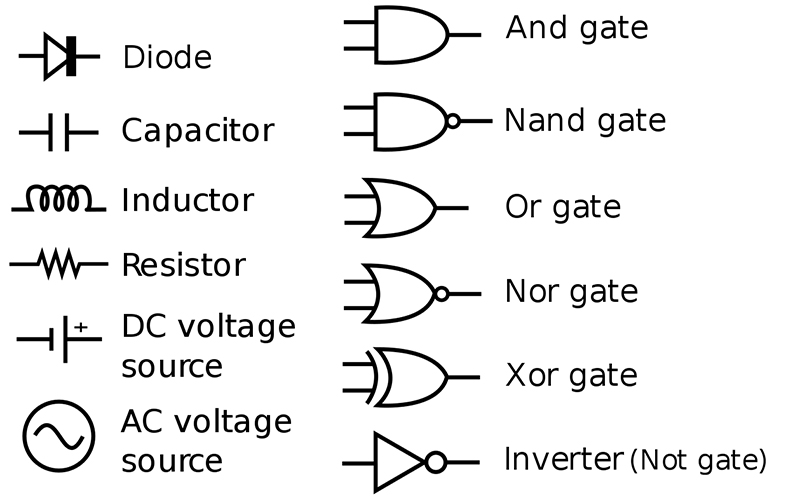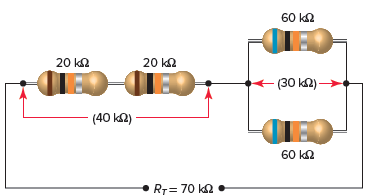Electronic Symbol
An electronic symbol is a pictogram used to represent various electrical and electronic devices or functions, such as wires, batteries, resistors, and transistors, in a schematic diagram of an electrical or electronic circuit. These symbols are largely standardized internationally today, but may vary from country to country, or engineering discipline, based on traditional conventions.
Content from Wikipedia : Electronic symbol

Standards for symbols
The graphic symbols used for electrical components in circuit diagrams are covered by national and international standards, in particular:
IEC 60617 (also known as BS 3939).
There is also IEC 61131-3 – for ladder-logic symbols.
JIC JIC (Joint Industrial Council) symbols as approved and adopted by the NMTBA (National Machine Tool Builders Association). They have been extracted from the Appendix of the NMTBA Specification EGPl-1967.
ANSI Y32.2-1975 (also known as IEEE Std 315-1975 or CSA Z99-1975).
IEEE Std 91/91a: graphic symbols for logic functions (used in digital electronics). It is referenced in ANSI Y32.2/IEEE Std 315.
Australian Standard AS 1102 (based on a slightly modified version of IEC 60617; withdrawn without replacement with a recommendation to use IEC 60617).
The number of standards leads to confusion and errors. Symbols usage is sometimes unique to engineering disciplines, and national or local variations to international standards exist. For example, lighting and power symbols used as part of architectural drawings may be different from symbols for devices used in electronics.
Common electronic symbols
1Traces
2Grounds
3Sources
4Resistors
5Capacitors
6Diodes
6.1Bridge rectifiers
7Inductors
8Transformers
9Transistors
9.1Bipolar
9.2Unipolar
10Vacuum tubes
11Switches
12Relays
13Lamps
14Current limiters
15Electro-acoustic devices
16Antennas
17Cables
18Connectors
19ICs
19.1Logic gates
19.2Flip-flops
19.3OpAmps
20Oscillators
Historical electronic symbols
Copyright Notice:This article is an original article, the Copyright belongs to Autaba Welcome to share this article, Please keep the source for reprinting!

